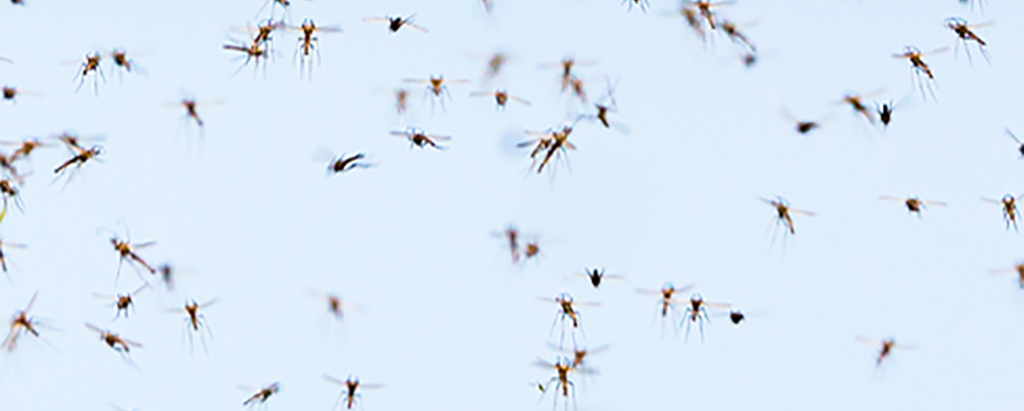
Stopgetrees.org works to provide news and coverage on genetically engineered (GE) trees as well as related topics like tree plantations and industrial forestry.
By JOE GREEN
Deforestation creates a habitat preferred by mosquitoes that transmit human diseases, according to researchers.
Most disease-vector mosquito species live in lands cleared of trees, showing that preserving forests can provide benefits beyond aesthetics, they wrote in Basic and Applied Ecology.
“This research shows that when we convert forests to other uses, we make habitat for the mosquitoes that carry our diseases,” researcher Nathan D. Burkett-Cadena, PhD, assistant professor at the University of Florida and entomologist at the Florida Medical Entomology Laboratory, said in a news release. “The takeaway message is that our forests provide benefits above and beyond the biodiversity they sustain, the products they provide — such as food, lumber and medicine — and the recreational opportunities that they provide. Forests are poor habitat for most of our disease-carrying mosquitoes.”
For their study, Burkett-Cadena and Amy Y. Vittor, MD, PhD, an assistant professor of infectious diseases and global medicine at the University of Florida, assessed 17 prior studies on populations of mosquito species spanning 12 countries. The studies were conducted in locations with a range of different climates, including tropical and temperate locales. In all, 87 mosquito species from eight different genera were observed.
Only data from forested and artificially deforested areas were used in the analysis.
Burkett-Cadena and Vittor found that 52.9% of mosquito species were associated with deforested areas. Of the species favored by deforested lands, 56.5% were vectors of human pathogens.
Conversely, just 27.5% of species that are vectors of human pathogens were negatively affected by deforested lands. In addition, species that are vectors of numerous human pathogens were all favored by deforestation, the researchers said.
Infectious diseases for which species served as vectors include chikungunya, malaria, dengue and arboviruses in general.
The researchers noted that associations between deforestation and disease is “far from uniform or certain,” and recommended further study.
“Incorporation of ecological theory … and evolutionary perspectives would expand our understanding of the dynamics that drive changes in mosquito species assemblages,” they wrote. “Given the rapid pace of global land use change and deforestation, it is imperative that these dynamics are better understood to mitigate disease risk and guide land use policy.”
